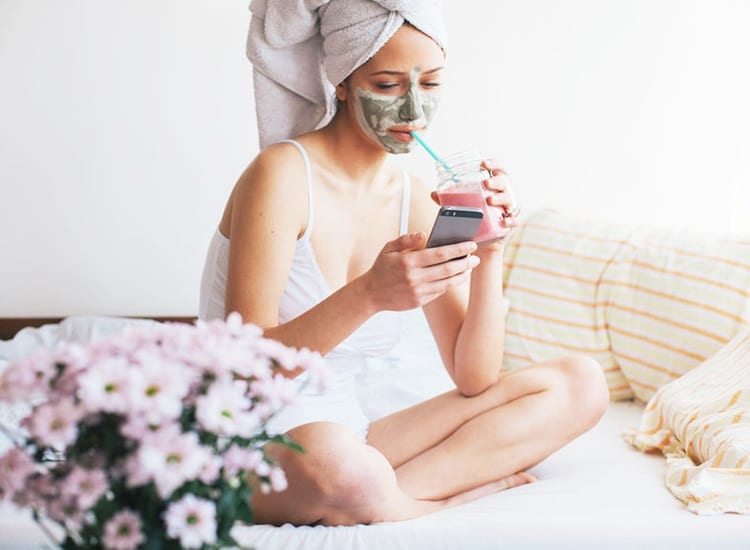Clean 21: 21 Day Detox
Our Signature 21-Day Full-Body Reset
Questions? Ask about this product
Free Shipping On Orders Over $50
Complementary products

 There are over 5 million posts on Instagram that use the hashtag #selfcare. When we’re stressed out, eating healthy meals, exercising, and socializing are usually the first things to go. We put these self-care activities on the backburner, promising to make time next weekend or after completing a big project at work. Sound familiar?
There are over 5 million posts on Instagram that use the hashtag #selfcare. When we’re stressed out, eating healthy meals, exercising, and socializing are usually the first things to go. We put these self-care activities on the backburner, promising to make time next weekend or after completing a big project at work. Sound familiar?
Self-care may sound like an over-indulgent or lazy concept to some – but this couldn’t be further from the truth. Putting your personal wellness at the bottom of your priority list can take a major toll on your health and lead to burnout. On the flip side, making time to take care of yourself can have some pretty incredible benefits in the short-term and down the line.
Self-care means something different to everyone, but it’s defined as any activity that we do deliberately to take care of our mental, emotional, and physical health. These behaviors are meant to provide balance in our busy, over-stimulated lives. While the concept sounds simple, it’s something so many of us overlook.
We all start the week with good intentions. The plan: wake up early to make a big salad for lunch, hit the gym or meet a co-worker for happy hour, and relax in the tub before heading to bed early. In reality, we become so overwhelmed at work that we forget to eat, cancel our yoga class, and drink half a bottle of wine at home before collapsing on the couch – and that’s just Monday.
According to counseling psychologist Raphailia Michael, there are a couple of golden rules that define self-care. First, it needs to be something you plan – not something that randomly happens. It should be an active choice, a promise to yourself that you write in your calendar or journal to solidify your commitment. Second, keep a conscious mind about self-care. Be aware of why you do it, how it makes you feel, and the impact it has on your life.
If we don’t feel well, we can’t function well. This means we have to pay attention to our own wellbeing if we want to do the things that are important to us – succeed at work, maintain relationships, and take care of others. Beyond feeling more positive, relaxed, and productive, research shows that committing to a self-care routine has significant long-term health benefits.
For starters, the simple act of taking time for yourself, regardless of what you do, boosts your confidence and self-esteem. Plus, it demonstrates to other people in your life that your needs are important, too. Self-care helps you develop a positive relationship with yourself and your body.
Self-care also goes a long way towards helping us reduce stress. There is plenty of research that shows the long-term effects of chronic stress on our mental and physical health. Practicing deep breathing, meditation and yoga calms the nervous system and minimizes stress to ward off serious conditions like depression, anxiety, heart attacks, stroke, and autoimmune disorders.
Most of us work way too much and don’t set professional boundaries. Self-care helps promotes balance in our lives. At work, taking breaks to go for a walk, stand up and stretch, or eat lunch away from your desk will help you avoid overextending yourself and keep your mind sharp.
If you’ve been putting your mental, emotional, or physical health on the backburner, stick to the basics at first. Over time you’ll get into a groove and find the specific types of self-care that have the biggest impact for you. These activities are something everyone can start with to find what works:
If you’re starting the 21-Day Clean Program, you’re already practicing a form of self-care. Now is a great time to set up a three-week routine with additional activities that nourish your mind, body, and spirit.
Written by Kate Kasbee